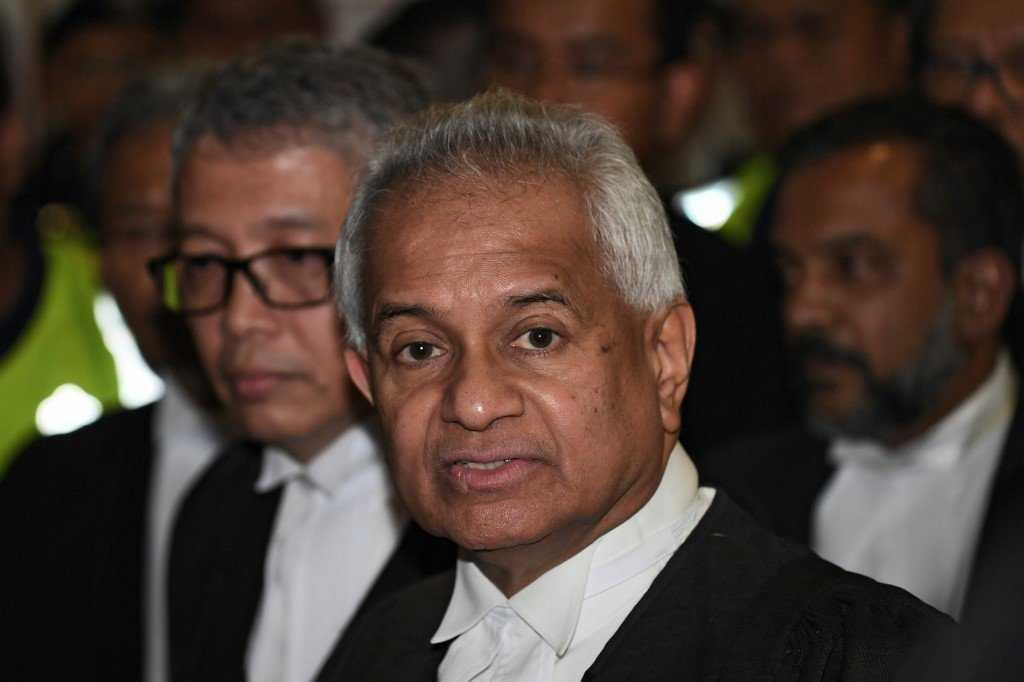Under fire, ex-AG Thomas says his offer of compensation to Sulus legally correct
The former attorney-general explains why he offered to resume an annual compensation stopped after the Sulu invasion.
Just In
Former attorney-general Tommy Thomas has defended his response to a group of individuals claiming to be the heirs of the defunct Sulu sultanate, saying the amount he offered to pay them was compensation to which they were entitled by law.
Thomas, who came under fire over the 2019 letter he sent to the lawyers of the claimants who were recently awarded billions of dollars by an arbitration court in Paris, also said the Malaysian government had never questioned the annual compensation of RM5,300 given to the Sulu descendants until 2013, when Putrajaya terminated the payments in the wake of the armed Sulu incursion in Lahad Datu, Sabah.
Thomas in his letter had offered to resume the payments as well as some RM48,000 in backdated payments plus interest, in exchange for the Sulu claimants putting a halt to the arbitration process.
"That represented in law the loss they suffered in the seven-year period," he said in a lengthy statement today, breaking weeks of silence over the contents of his letter which were repeatedly cited by the arbitrator in justifying the unusual award to the Sulus.
Thomas argued that the Malaysian government was wrong in not officially explaining its 2013 decision to stop the colonial-era payments.
He said if the move was to punish them for the Sulu attacks on Sabah, there was no evidence that the recipients of the annual payments were involved.
He also said that the government should have first furnished evidence of the Sulus' involvement and sought a court order for the payments to be stopped.
"However, there appears to be no evidence linking the Sulu claimants who were receiving the annual compensation from Malaysia with the armed invaders of Lahad Datu," Thomas added.
He said upon the formation of Malaysia, the government should have ended the payments as they were a form of compensation agreed on between the British colonial power and the Sulu sultan, and not binding on the Malaysian government.
Adding that Malaysia had continued the payments "without hesitation or protest", Thomas said this showed the country's admission to its "legal obligation".
"The continuous payment by Malaysia for 50 years is strong – indeed indisputable – evidence that Malaysia stepped into the shoes of the British government as successor-in-title, and is estopped from contending otherwise.
"Hence in that half a century, Malaysia’s legal obligation to pay annual compensation to the Sulu claimants was never questioned by the Malaysian government," he added.
Thomas came under attack from various parties over his letter, which appeared to be the backbone of the arbitration decision now threatening the forfeiture of billions in Malaysian assets abroad.
The eight Sulu individuals had cited a 1878 agreement between the then Sulu sultan and the British colonial government, where the ruler surrendered sovereignty over some territories located in North Borneo, or what is now Sabah.
In the arbitration decision announced in a French court in February this year, the claimants were awarded US$14.92 billion (RM60 billion) plus interest and costs.
Earlier this month, lawyers for the claimants sought to implement the award by serving an asset seizure notice on two subsidiaries of Malaysian oil firm Petronas in Luxembourg.
Putrajaya subsequently secured a stay order from a Paris court to stop the execution of the award, with the Sulus' lawyers threatening to set their eyes on Malaysia's other assets around the world.
Subscribe to our newsletter
To be updated with all the latest news and analyses daily.
Most Read
No articles found.
